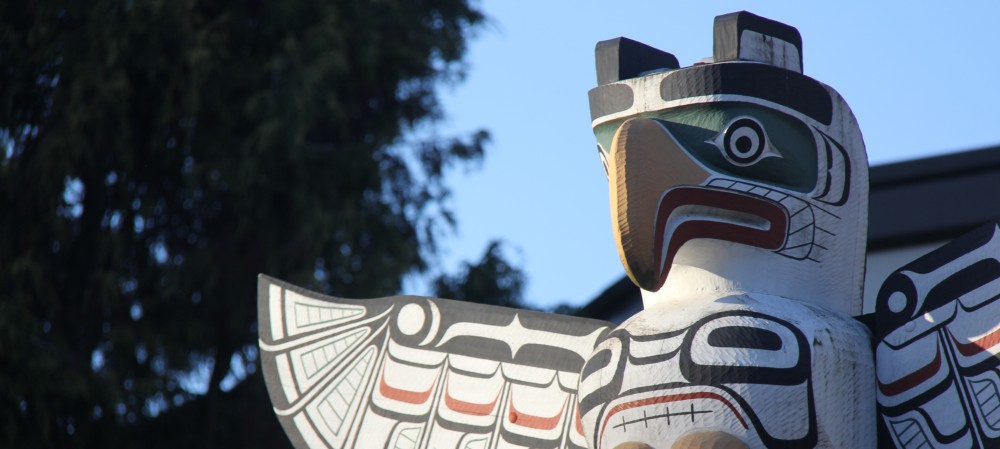Tonight I attended a lecture on “Decolonizing the Language Revitalization Process” given by April Charlo (Bitterroot Salish people) and Khelsilem Rivers (Sḵwx̱wú7mesh-Kwakwa̱ka̱’wakw). There were two points that I found particularly earthshattering. One was that there is no word for sorry in Salish. Apology, regret, and a hope to make it better are not something that you can express in a single word. The concept is much bigger than a single word in the Salish dialect that April speaks and it is something that you have to express in your actions, words, thought and in the impact that it has on another person. What came to mind for me was how Beverley Jacobs responded to the Prime Minister’s apology “What is it this government is going to do in the future to help our people?” How valuable is a word like sorry without all those other expressions behind it? What would an apology from Stephen Harper on behalf of the Government of Canada look like, feel like, sound like if there was no word for sorry?
It is easy for me to tell Stephen Harper he should embody what he talks about, but Klhesilem River said something that made it harder for me to just do that. He was talking about the difference between linguistics and revitalization, where one is the study of a language, which is not focused on creating a healthy community of fluent speakers. Linguistics is learning about a language, not learning a language itself, and yet our language classes are often focused on learning the suffixes and the pronouns and the verbs and all the other parts of the language, or on the translation of words in one language into another, and not on the actual practice of speaking the language. I was feeling really great after the lecture, like I had learnt a lot. And then on processing a bit, it hit me then that in studying decolonization or reconciliation as I am often in First Nations Studies, I am not (necessarily) practicing decolonization, maybe at all. This is a challenging thing for me to face, because FNSP feels lovely and safe, and I feel pretty confident in my ability to discuss decolonization and reconciliation. How can I begin?
By Katherine Carey, a fifth year First Nations Studies student who grew up on the unceded territory of the Bantu people and the Coast Salish people. She has worked for various women’s centres in Vancouver, and is currently completing a practicum for the First Nations Health Authority. This reflective piece was written after she had attended the event on September 25th, 2013 at SFU Goldcorp Centre for the Arts.

 Follow
Follow